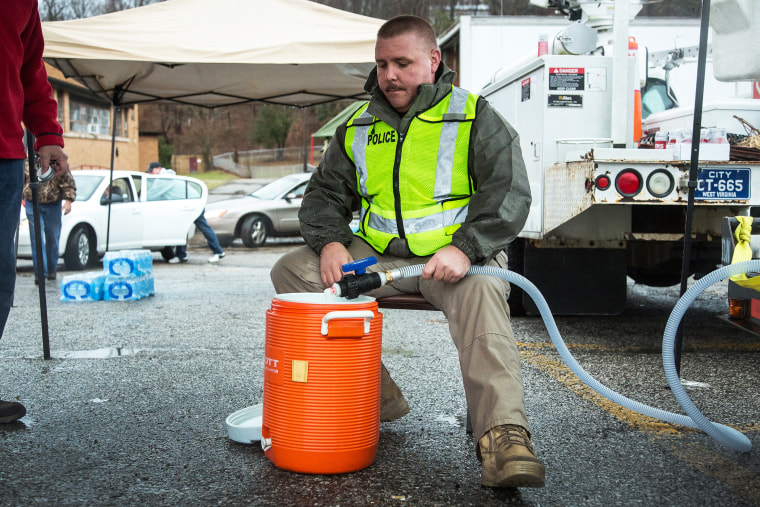It has now been nearly four weeks since a West Virginia chemical spill left tens of thousands of residents in the state without safe drinking water, and local officials are still struggling to determine the extent of the damage.
At a hearing Tuesday of the Senate Environment and Public Works Committee, West Virginia Secretary of State Natalie Tennant suggested that it could be years before the health consequences of the spill become clear.
"People are fed up," she said during her testimony. "They are angry, and they are scared. Several people showed up at a town hall in Charleston last week with rashes they believe are connected to the water. Others have complained of headaches, nausea and vomiting. Families are melting snow to give their kids baths."
She called for a 10-year study "to monitor the long-term health and well-being of community members" affected by the spill -- a plan she said was originally suggested by the executive director of West Virginia's Kanawha-Charleston Health Department.
Very little is known about the long-term health effects of exposure to 4-Methylcyclohexane Methanol (MCHM), the primary chemical which leaked into the state's Elk River. Freedom Industries, the company responsible for the spill, has said that a second compound known as PPH may have leaked into the water, but preliminary testing has not shown significant quantities of that chemical in the water supply. Like with MCHM, the effects of PPH exposure are unclear.
Part of the purpose of Tuesday's hearing was to discuss the recently proposed Chemical Safety and Drinking Water Protection Act, which is intended to prevent similar spills from occurring in the future. The bill was introduced by committee chair Sen. Barbara Boxer, D-Calif., along with West Virginia's two Democratic senators, Joe Manchin and Jay Rockefeller. It would require regular inspections of chemical storage facilities such as the one that leaked in West Virginia and set minimum guidelines for emergency response plans.
During the hearing, Boxer said the legislation was designed to protect "the most basic right: to take a glass of water and not worry that your kids are going to get cancer."
Sen. David Vitter, R-La., the ranking minority member on the committee, said that he supported the legislation.
"While I have specific issues with it that we are working through, I'm completely supportive of the effort and hope to come to a positive resolution of those specific issues very soon," he said.
However, industry representatives cautioned against rushing to install new regulations or exercise more regulatory authority without further study. Richard O. Faulk, who leads the Initiative for Energy and the Environment at George Mason University's Law and Economics Center, said that the energy industry is by and large very effective at self-regulating. Faulk, who is also a senior partner with the D.C. firm Hollingsworth LLP, recently authored an amicus brief in which the Chamber of Commerce and other business groups challenged new greenhouse gas regulations being proposed by the EPA.
Faulk, who is also a senior partner with the D.C. law firm Hollingsworth LLP, recently authored an amicus brief in which the Chamber of Commerce and other business groups challenged new greenhouse gas regulations being proposed by the EPA.
"Even when accidents happen in facilities owned by other companies in other industries, the American chemical and petrochemical industries use those incidents as learning opportunities to improve the safety of their own operations," he said. "Unfortunately, the West Virginia chemical spill is a disappointing, and tragic exception to the practices I have observed in the mainstream of America’s chemical and petrochemical industry."
